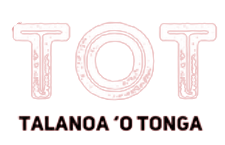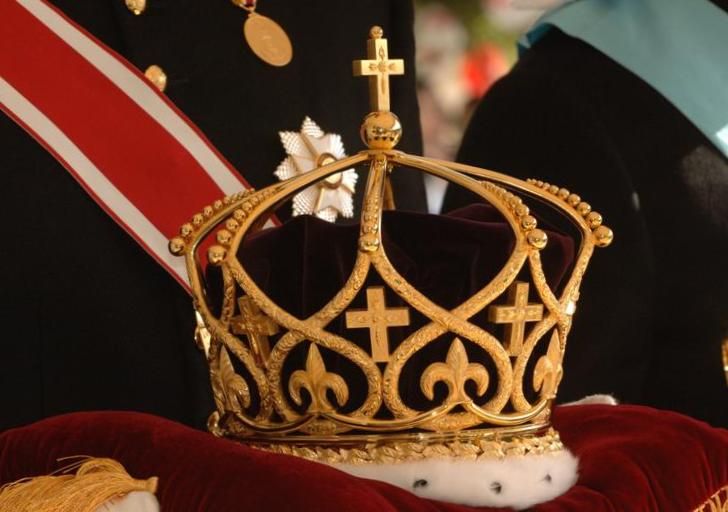Recent events have sparked a discussion on section 41 of the Tongan constitution. According to the constitution, the person of the King is sacred. What does it even mean to be sacred? The sacredness of the King has not been officially defined, it is therefore vague and open for interpretation.
Some have different opinions on what this sacredness entails. However, according to the Oxford Learners Dictionary, the word sacred is used when describing something or someone to be “connected with God or a god.”
Does this imply that the Tongan King is viewed to have an established connection with God or a god? If so, why?
Historical Context
Before the above questions are answered, it must be understood that throughout history, at different times and in different places, we would find various monarchies having some form of connection with a god, or a multitude of gods. Consider the following:
i) Ancient Egypt: The Pharaohs of ancient Egypt were believed to be divine or semi-divine rulers. They were often considered the earthly embodiment of gods such as Horus or Ra. Their authority was closely tied to religious beliefs, rituals, and ceremonies.
ii) Mesopotamian Civilizations: Various civilizations in Mesopotamia, such as Sumer, Akkad, Assyria, and Babylon, had monarchies. These monarchs had strong connections to their respective pantheons of gods such as Anu, the god of heaven; Enki, the god of water; and Enlil, the “Lord of the Air.” Rulers often claimed to rule with the blessing or mandate of specific deities.
iii) Ancient Greece: While not all Greek city-states were monarchies, some, like Sparta and Macedon, had kings who were believed to have divine ancestry. For example, the Spartans revered their kings as descendants of Heracles, a mortal born Olympian.
iv) Ancient Rome: During the Roman Empire, emperors often claimed divine status or affiliation with gods. Emperors like Augustus and Julius Caesar were deified after their deaths.
v) Medieval Europe: Many European monarchies, particularly during the Middle Ages, claimed divine right to rule. Kings and queens were anointed by the Church and believed to rule by the will of God. This belief was often reinforced through ceremonies such as coronations.
vi) Imperial China: Chinese emperors were considered the “Son of Heaven” (tianzi) and had a mandate to rule bestowed by divine authority from the deity, “tian.” The concept of the Mandate of Heaven justified their rule and served as a basis for dynastic succession.
It appears that throughout history, various monarchies have claimed a divine authority that acts as a powerful justification for the ruler’s position and actions. If the ruler was perceived as chosen by the gods or acting on their behalf, it bolstered their legitimacy in the eyes of their subjects.
With a divine ruler in place, there was very little to no accountability. After all, who dares to question a ruler that had the backing of an All Powerful and All Knowing deity. Any and all attempts to hold the divine ruler accountable would be perceived as both blasphemous and treasonous. So, going back to the question:
Is the Tongan King viewed by his subjects to have an established connection with God or a god?
A descendant of the divine
While many Tongans may wish to claim that Tonga is unique with its monarchy, history has proven that Tonga is not. The first king or “Tu’i Tonga” named ‘Aho’eitu, according to Tongan mythology, was said to be a son of a god named “Tangaloa.” In no uncertain terms, the first Tongan King was believed to be a descendant of the divine. But why would our ancestors need to establish such a connection with a deity?
The consistency throughout history of the concept of a divine connection would suggest that this may be one of the psychological aspects of the human condition. Tonga may have evolved from the mythologies of the past into the now “Christian” version, but the concept of having some form of divine connection lingered. Consider the following:
i) As Taufa’āhau became the King of all Tonga, it is said that he offered Tonga to be protected by God. If there is truly a God who created everything, it begs the question: Of every human being on the planet, who gave Taufa’āhau the right to offer God what is already God’s?
It is either that the King must have been divinely inspired as prophets were in the Bible, or the King must be of divine origins just like his ancestors were believed to be. Regardless, it has been viewed by many as the holy King conducting a holy sacred event called “Tukufonua”. It emboldened the perceived connection the King presumably had in the first place as a descendant of the divine.
ii) The claimed connection with God also made its way into the constitution. The first “Declaration of Rights” reads as follows:
“…Since it appears to be the will of God…”
One could argue that here, the constitution starts off by making the argument that the constitution itself is speaking on behalf of God. If that is the case, then it must also follow that it is the will of God, as instituted by the constitution, for the King to be sacred.
Tonga has appeared to be on the same playbook with other monarchies, that for millennia, have successfully claimed a divine connection. It would suggest that the said connection was a necessary ingredient for monarchs to consolidate and maintain their power, control their subjects, and justify their rule in the eyes of society.
But this would also imply that deep down, we as a species have always known that sociologically, no one is above anyone unless someone can convince the rest that he/she is divinely guided by some powerful being of supernatural power. In Tonga’s case, they were convinced that the first king ‘Aho’eitu had divine ancestry and thus gave all his descendants a divine origin.
This could possibly explain the psychology of how many Tongans revered their King to be. Whatever the King does is considered by traditionalists as being just. Whatever the King says is considered scripture. In fact, the Tongan translation for the word scripture is “folofola.” This is also the same translation used for when the King speaks. So literally, whenever the King speaks, his words are scripture in the most literal sense. It is consistent with the constitution establishing the King as being sacred, to have a divine connection and therefore be divine whenever he speaks.
Uniqueness creates value
Generations after generations, the divinity of the ancient King ‘Aho’eitu starts to erode. Specifically, with modern academic learning and through the prism of science, people are starting to realize that perhaps the so-called divine connection was merely one of the superstitious nonsense that their ancestors used to believe and therefore has no place in the modern world. This is where the “uniqueness” argument comes in.
In economic terms, for something to have value and be able to retain its value, it must be scarce. For something to be scarce, it helps if it is considered rare and unique. Its availability therefore in terms of supply, is less relative to the demand for it. If the person of the King is not only scarce but also considered by his subjects to be unique in its sacredness, then the monarchy as an institution has an immense value that would be deemed the most priceless commodity in all of existence, at least in the eyes of his loyal subjects.
Therefore, the issue of our uniqueness seems more like a marketing strategy that some have successfully employed on behalf of the King. Through this strategy, most Tongans would subconsciously allocate value to the monarchy as an institution because through His Majesty, they are being protected from Heaven by the “Tukufonua.”
In a small country vulnerable to consistent natural disasters and vulnerable to possible external threats such as colonialism, a heavenly protection could possibly attain more value than it should. It is a brilliant tactic, one might add, to claim that in all of creation and the entirety of the cosmos, Tonga is uniquely special in that we are protected by God through the King and His divine lineage.
As a result, many are of the opinion that any attempt to hold His Majesty accountable on anything is a sign of disrespect. Furthermore, any attempt to reduce His Majesty’s power is also a disrespect and could likely result in God’s wrath upon Tonga. In fact, some natural disasters have been interpreted as God’s wrath upon Tonga’s democratic reforms, viewing democracy as the tool of the devil. Moreover, the untimely passing of His Late Majesty King Tupou V, who consented to the 2010 democratic reforms, is being interpreted by many royalists as God’s wrath upon him.
These superstitious beliefs are held even by those with degrees in various fields of academic studies. It reflects the value that they have allocated for the monarchy and how that value supersedes their own common sense. It also shows the depth in which the “unique” argument had successfully reached, creating a collective identity that this is who we are; we are special and unique because of the King.
A manufactured delusion
Needless to say, believing that we are unique boosts our collective sense of superiority. As a result, we have deluded ourselves into believing that we as Tongans are better than everyone else. That we are the jewel of the Pacific, the place where time begins, the centre from which civilization spawned, the so-called “Friendly Islands.”
Yes, it is a delusion and a manufactured one marketed successfully within our own people. This is the same delusion that has avoided so many from ever questioning issues such as the passport scandal, the MV Ashika scandal, the trust fund scandal, and the Tongasat scandal to name a few.
Delusions are a symptom of either a medical, neurological, or mental disorder. Luckily there is hope, for ours is merely a psychological issue. Just as money is merely a piece of printed paper and that its value exists psychologically, so as the sacredness of the King. The word “sacred” may be printed on paper that we call the constitution, but its true value exists only in a psychological sense.
From a scientific perspective, it could be argued that every human being is essentially the same, in the sense that no one is more sacred than anyone else. From a Christian perspective, it could be argued that everyone is a sinner. From basic common sense, everyone has equal dignity by virtue of being born human. It is therefore that this delusion is an insult to intelligence on multiple fronts.
To get rid of such delusions there are various steps to be taken, various issues to be addressed such as identity and our value systems. A holistic effort is required where one of them needs to be amendments to the constitution. This is just one of the many reasons why there is a need for further constitutional reform in Tonga.




